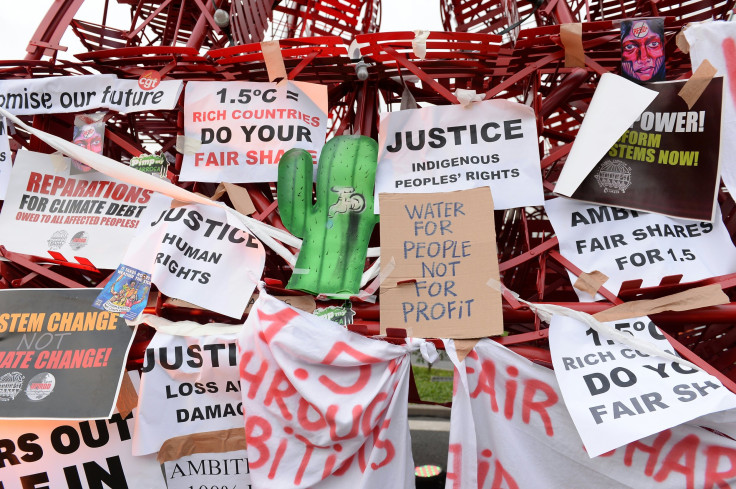Paris Climate Talks: Final Draft Text For Climate Deal Ready, Expected To Be Adopted

After about two weeks of intense negotiations, a final draft text on a deal for climate change has been agreed to, an official from the office of French Foreign Minister Laurent Fabius told Agence France-Presse (AFP). The agreement, about which no details have yet been released, came early Saturday, about 16 hours after the talks were scheduled to be closed.
"We have a text to present," the official told AFP. The agreement, which plans to combat global warming and reduce its impacts, was reportedly edited line-by-line by French and United Nations officials.
The document will be presented to ministers at 11.30 a.m. local time Saturday (5:30 a.m. EST), and there were expectations that it will be adopted at a special session. The initial agreement means that the years-long effort for a universal pact to prevent catastrophic climate change may be concluding.
Fabius said Friday, according to AFP, that he was “sure” that the project would be successful and added: "Everything is in place to achieve a universal, ambitious accord."
"Never again will we have a more favorable momentum than in Paris," Fabius said, according to AFP.
The Paris talks have been regarded by some as the last chance to avert a worst-case-scenario due to climate change, which has led to severe droughts, floods and storms, and rising sea levels that can wash out islands. The deal would seek to overhaul energy systems used by countries by reducing the use of fossil fuels like coal, and replace them with renewable sources like solar and wind. Fairness over the deal and the financial obligations have been the biggest hurdles in the deal, AFP reported.
Developing countries have claimed that the rich, developed countries must do the majority of work to tame global warming because they have emitted most of the greenhouse gases since the Industrial Revolution. However, developed countries have asked the developing nations to make more efforts to control emissions as they have been responsible for most of the emissions at present and the warming that happens in the future.
Six years ago, the richer nations vowed to collect $100 billion by 2020 to help developing countries to make shifts in their energy system and cope with the effects of climate change. However, it was not clear how the money will be raised.
Experts claim that even if all the efforts to curb emissions were taken, global warming would stand at at least 2.7 degrees Celsius. While countries, which may be impacted the most have been pushing to a target of 1.5 degrees Celsius, developing countries, including China, India and Saudi Arabia, have been pushing to cap it at 2 degrees Celsius, a move that would allow them time to burn more fuel.
© Copyright IBTimes 2025. All rights reserved.






















